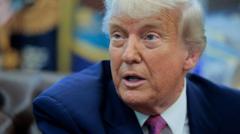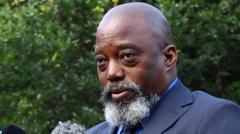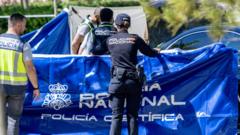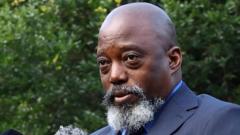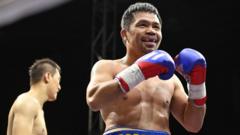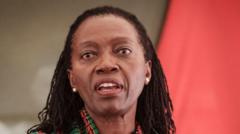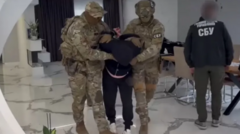Joseph Kabila's recent homecoming to the Democratic Republic of Congo has stirred controversy and tension, as he faces allegations of backing a separatist militia while remaining beyond the reach of prosecution.
Congo's Kabila Returns Amid Treason Allegations and Militia Tensions

Congo's Kabila Returns Amid Treason Allegations and Militia Tensions
Former President Joseph Kabila's shocking return to Congo follows treason accusations and an escalating militia conflict.
On May 27, 2025, the former president of the Democratic Republic of Congo, Joseph Kabila, made a surprising return to his homeland after years of self-imposed exile. This comes just days after the Congolese Senate accused him of treason for allegedly supporting the M23 militia, which has seized significant territories in the east this year.
Despite these serious allegations, Kabila remains beyond the government's grasp as he chose Goma, a city currently under M23 control, for his re-entry. The Senate has voted for his prosecution in the capital, Kinshasa, but Kabila's choice of Goma effectively shields him from immediate repercussions.
The M23 militia, which is said to have ties to Rwanda, has been a central figure in the ongoing conflict in the region. Kabila's return coincides with U.S. efforts to facilitate peace talks between Rwanda and Congo, raising concerns that his presence may disrupt negotiations and the delicate political landscape.
In a recent video message, Kabila criticized his successor, President Felix Tshisekedi, labeling him a dictator. Tensions have escalated since the controversial 2018 presidential election, which Kabila's chosen candidate lost amid accusations of electoral fraud. Tshisekedi's subsequent power-sharing agreement with Kabila's party has since deteriorated, further muddying the political waters in Congo.
Kabila’s arrival in Goma was marked by a warm reception from M23's political leader, Corneille Nangaa, signaling a potential alliance between the former president and the rebellious militia. As the region remains volatile, the implications of Kabila's return could further complicate the path toward stability in the Democratic Republic of Congo and its relationships with neighboring Rwanda.
Despite these serious allegations, Kabila remains beyond the government's grasp as he chose Goma, a city currently under M23 control, for his re-entry. The Senate has voted for his prosecution in the capital, Kinshasa, but Kabila's choice of Goma effectively shields him from immediate repercussions.
The M23 militia, which is said to have ties to Rwanda, has been a central figure in the ongoing conflict in the region. Kabila's return coincides with U.S. efforts to facilitate peace talks between Rwanda and Congo, raising concerns that his presence may disrupt negotiations and the delicate political landscape.
In a recent video message, Kabila criticized his successor, President Felix Tshisekedi, labeling him a dictator. Tensions have escalated since the controversial 2018 presidential election, which Kabila's chosen candidate lost amid accusations of electoral fraud. Tshisekedi's subsequent power-sharing agreement with Kabila's party has since deteriorated, further muddying the political waters in Congo.
Kabila’s arrival in Goma was marked by a warm reception from M23's political leader, Corneille Nangaa, signaling a potential alliance between the former president and the rebellious militia. As the region remains volatile, the implications of Kabila's return could further complicate the path toward stability in the Democratic Republic of Congo and its relationships with neighboring Rwanda.


